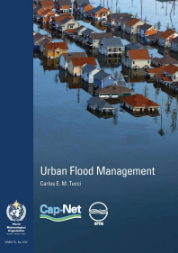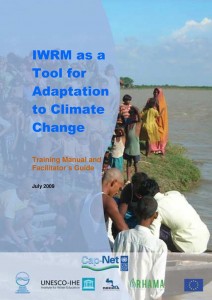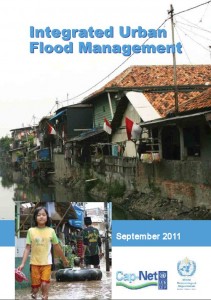2007, WMO No. 1372, Carlos E.M. Tucci in cooperation with Cap-Net
The document was prepared as a basis for a course of the same title aimed at decision-makers, professionals of various fields of knowledge, working in the field of the urban environment as administrators, legislators, engineers, architects, geologists, biologists and others. The course aims to present a comprehensive view of the management of urban rainwater, which will also include urban drainage and river flooding in cities. The course does not address project-specific aspects, but attempts to tackle the strategic aspects of management and the interfaces with the various aspects of urban water and other elements of city planning and management.
IWRM as a Tool for Adaptation to Climate Change
Training Manual and Facilitator’s Guide
2009, in cooperation with Cap-Net, UNESCO-IHE, REDICA, Rhama
These training materials are intended to increase the understanding about climate change and to explore opportunities of action. There are actions that can be taken to prepare for a more variable climate and we can make a case to our policy makers to prepare for change. The most important immediate action concerns the way water resources are managed. Improving water management today will prepare to adapt tomorrow. Improved understanding of water resources will allow more efficient and flexible allocation systems and better investment in infrastructure, both to improve access to water and reduce risks from climate change.
Integrated Urban Flood Management
2011, Carlos E.M. Tucci in cooperation with Cap-Net
This training manual addresses a broad spectrum of relevant issues in this emerging field of integrated urban flood management. It is expected to provide course participants and practitioners with best practice concepts and application with the intention to further inform and engage stakeholders in promoting integrated and cooperative approaches in water management in general. The manual integrates expertise from disciplines such as hydrology, sociology, economics, architecture, urban design, construction and water resources engineering and management. The subject is approached from an international perspective and case studies, exercises, expert advice and literature recommendations are included to support the theory and illustrations.


